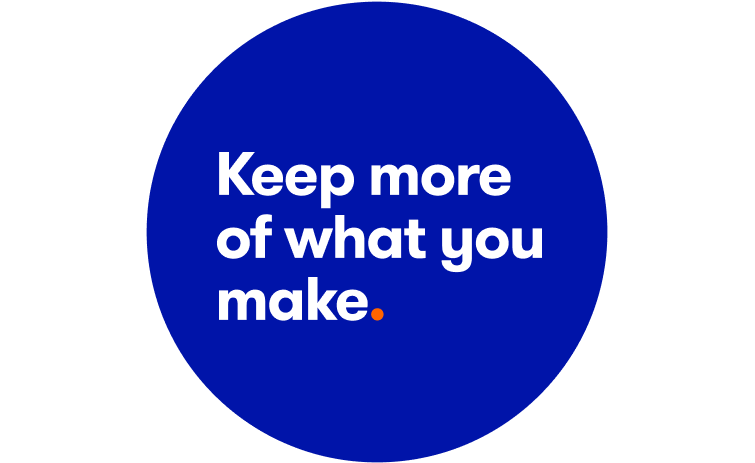Tax hub
How to reduce Capital Gains Tax in 2026.
Looking at new ways to reduce your Capital Gains Tax (CGT) liability in 2026? Read our guide to learn how you could legally reduce your capital gains tax bill.

Significant reductions to tax allowances over the past couple of years mean thousands more investors are now being stung by capital gains tax. And CGT, which can take a significant chunk out of your returns when you sell an asset, is being paid by an army of investors who had previously made nowhere near enough profit to attract the attention of the taxman.
The CGT allowance is the amount of gains you can enjoy each year before you need to start worrying about capital gains tax. At the start of the 2023/24 tax year, it was cut from £12,300 to £6,000 and was cut again in April 2024 to just £3,000.
But while capital gains tax can be swingeing, there are steps you can (legally) take to avoid it. The key, as with many areas of financial planning, is to plan ahead.

13 ways to pay less CGT
Some of these tips are easier than others, but if you know you have a looming liability and start thinking about it now, there may well be something you can do to reduce your CGT bill, or mitigate it altogether.
1) Use your CGT allowance
The simplest way to avoid capital gains tax is to regularly use your capital gains tax allowance (officially known as your annual exempt amount or AEA).
How easy this is to do depends on the assets you are selling. It’s tricky if you are dealing with property, jewellery or art that’s worth more than the allowance, but it’s pretty straightforward with an investment portfolio that can be sold off in chunks.
You don’t even need to cash in shares or fund holdings (which you may well not want to do). Using your CGT allowance can be as simple as selling all or part of one holding and immediately reinvesting that money into another company or fund.
If you’ve a looming liability, it’s a good idea to think about this now and take advantage of the £3,000 allowance.
You cannot roll over any unused CGT allowance from previous years, so it really is a case of ‘use it or lose it’.
If you have a CGT liability on the horizon and you have time, you may also be able to avoid paying tax by selling gains gradually over a number of tax years. This doesn’t necessarily have to be a lengthy process – if a gain can be spread over two years you can time disposals to be at the end of one tax year and the start of the next.
2) Give money or assets to your spouse or civil partner
Another easy and straightforward way of reducing capital gains tax is to give an asset to your spouse or civil partner, as this type of transfer won’t be taxed. It also means you can each use your allowance, effectively doubling your annual exempt amount.
Where CGT can’t be avoided, a so-called ‘inter-spouse’ transfer can still be helpful if your spouse or civil partner pays a lower rate of tax than you.
This is because from 30 October 2024 higher rate taxpayers pay CGT at a rate of 24% on property and all other assets, while basic rate taxpayers only pay 18%.
It’s important to note that when you give assets to your partner that they are outright gifts; you aren’t just parking it with them temporarily to get one over the taxman. Once the transfer has happened you will no longer be the legal owner of that asset.
This means it’s important that you are confident in the strength of the relationship before you transfer any assets into their name.
Be careful if you give valuable assets to an unmarried partner as this could trigger a chargeable gain. Only gifts to married or civil partners are CGT exempt.”
3) Don’t forget your losses
Your assets and investments don’t always go up. But the upside to losing money on an asset is that when you sell or dispose of it, you can lever those losses to offset capital gains you have made elsewhere. This will reduce the total amount of your gain and subsequently the amount of capital gains tax you need to pay.
You can also carry losses forward from previous years, so long as you have reported them to HMRC within four years from the end of the tax year in which the asset was sold or disposed of.
4) Deduct your costs
In addition to deducting losses from your capital gains, you are also able to deduct certain costs. This will reduce the size of your gains and subsequently the amount of tax you need to pay.
If you were calculating the gain on a property, for example, (but not your main home as that will be exempt from CGT) you would be able to deduct costs relating to its purchase and sale. This could include legal and estate agents’ fees as well as stamp duty. The cost of home improvements like a new kitchen or loft conversion could also be deducted.
Similar costs can be deducted from gains on chattels like furniture, jewellery and artwork. For example, auction charges or sales commissions as well as the cost of restoration and repairs.
5) Increase your pension contributions
Unless you’re at risk of breaching the annual allowance, paying more into your pension is usually a good idea. But in addition to increasing your retirement income, paying more into your pension could, in some cases, reduce the amount of CGT you pay.
This is because CGT rates are linked to your rate of income tax. So, by paying more into your pension, you might be able to reduce your income for tax purposes and subsequently the amount of tax you pay on your capital gains from 24% to 18%.
6) Use your ISA allowance – each year
Any investments you hold in an ISA will be sheltered from tax and, when you cash your investment in, there will be no income or capital gains tax to pay either.
This means you should always take advantage of your annual ISA allowance – currently £20,000. Over the years an ISA can help you shelter a significant investment portfolio from tax. Bear in mind that couples can effectively double that allowance if they use both.
7) Try Bed and ISA
You can also use a strategy called ‘Bed and ISA’. This involves selling shares or funds held outside an ISA (perhaps to tactically realise a capital gain) and then immediately rebuying the same investments within your ISA.
CGT may be payable if the gain is above the CGT allowance, but it does mean that in the future that money will be sheltered from tax.
8) Donate to charity
If you don’t want to give your money to the taxman, you could always donate it to charity instead. Give an asset to a charity and no CGT will be payable on your gains.
9) Consider an Enterprise Investment Scheme
Enterprise Investment Schemes are a government initiative aimed at helping small businesses raise the funds they need to grow. In return for their capital, private investors get generous tax breaks including shelter from CGT if it’s held for three years.
This won’t be an option for everyone as it involves investing in very small companies. But it might be worth considering if you are wealthy and have a high tolerance for risk.
10) Make the most of gift holdover relief
If you are giving away business assets (including unlisted shares, or shares in your own company) for less than they are worth, you may be eligible for gift holdover relief. This means that no CGT will be payable for you on the gift, however the recipient may still be liable for it when they eventually dispose of it.
11) Be aware of chattels that are exempt from CGT
It’s not just assets like shares and property that can give you a CGT headache. Valuable possessions like furniture, art and jewellery may be subject to CGT when you sell them too. But while you might need to pay CGT on the sale of something like antique jewellery or a painting, you won’t normally have to pay it on ‘wasting assets’ which have an expected life of less than 50 years, for example an antique clock or vintage car.
It's also important to be aware that your personal car will be exempt from CGT as will any chattels where the sale proceeds are less than £6,000.
12) Be careful if you give away assets
Giving away assets to anyone apart from a married or civil partner might trigger a chargeable gain. That’s because gifts are treated in the same way as if you’d sold the asset. The potential chargeable gain will be the market price, minus the purchase price.
13) Know when to ask for help
It’s not always complicated to avoid capital gains tax. Sometimes it can be as simple as transferring assets to your spouse or civil partner or shuffling your investments around. However, it can quickly become complex, especially when concerns around tax start to take over your investment decisions. You may also be concerned if you are going to be affected by reductions to the CGT allowance and are likely to pay CGT for the first time.
In these instances, professional advice could be a very sensible investment. A qualified adviser will be able to help you plan ahead and reduce the amount of tax you pay now and going forward.
The value of your investments may go down as well as up. You may not get back all the money that you invest. If you are unsure about the suitability of an investment product or service, you should seek advice from an authorised financial advisor.
Open an account
Whether you are looking for a general trading account, an ISA or a SIPP, we’ve got you covered with a low, flat fee.
Personal Pension (SIPP).
Get pension peace of mind with our four-time Which? Recommended Personal Pension (SIPP). Invest yourself or let our experts handle your investments for you.
Stocks & Shares ISA.
Get tax-free investing all wrapped up with our award-winning ii ISA. Take care of your own investments or let us manage them for you.
Managed ISA.
Let us manage your ISA for you. Save time, leave it to the experts and feel confident in your investment goals - all for a low monthly subscription.
Important information: The ii SIPP is for people who want to make their own decisions when investing for retirement. As investment values can go down as well as up, you may end up with a retirement fund that’s worth less than what you invested. Usually, you won’t be able to withdraw your money until age 55 (57 from 2028). Before transferring your pension, check if you’ll be charged any exit fees and make sure you don't lose any valuable benefits such as guaranteed annuity rates, lower protected pension age or matching employer contributions. If you’re unsure about opening a SIPP or transferring your pension(s), please speak to an authorised financial adviser.